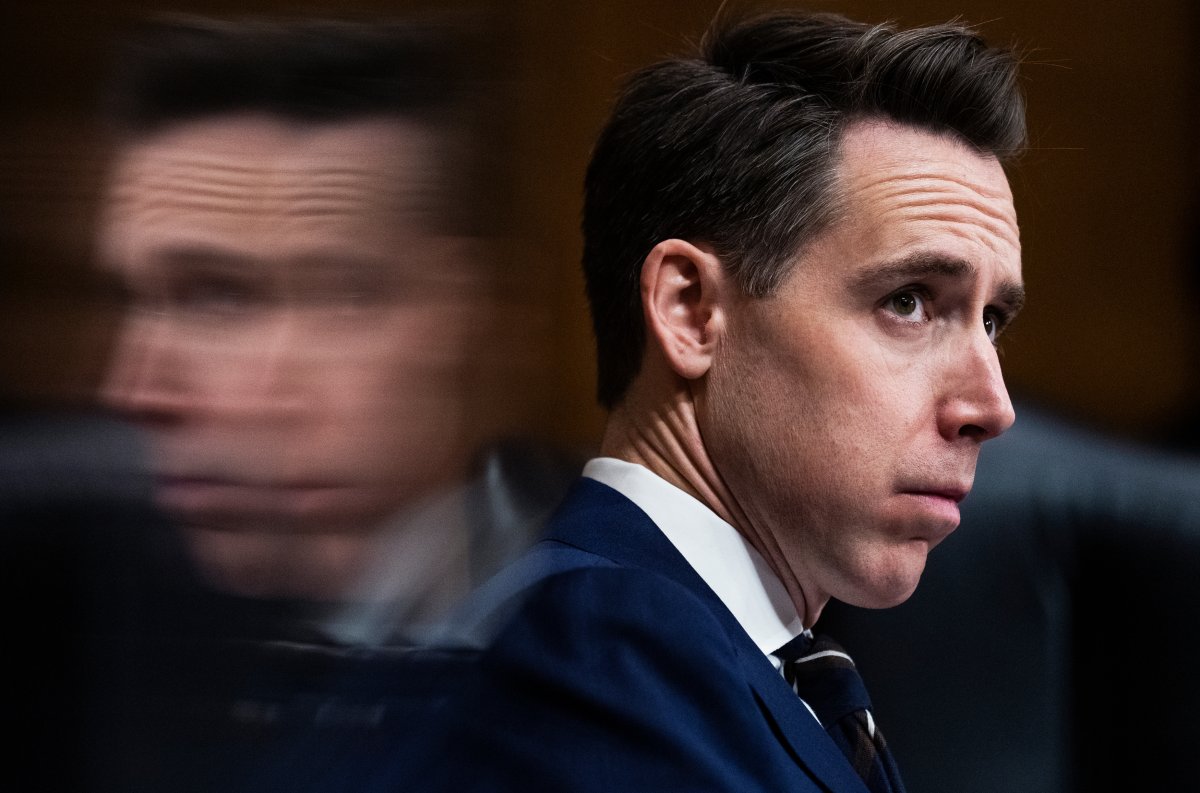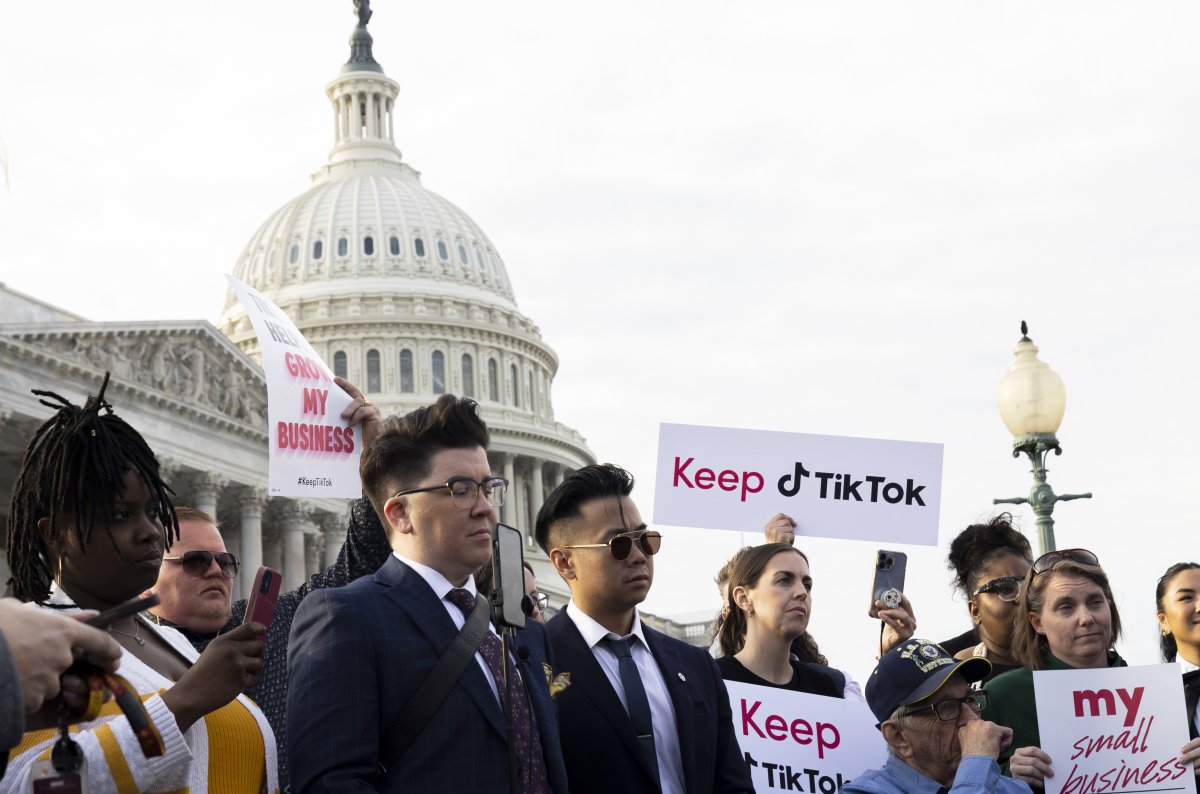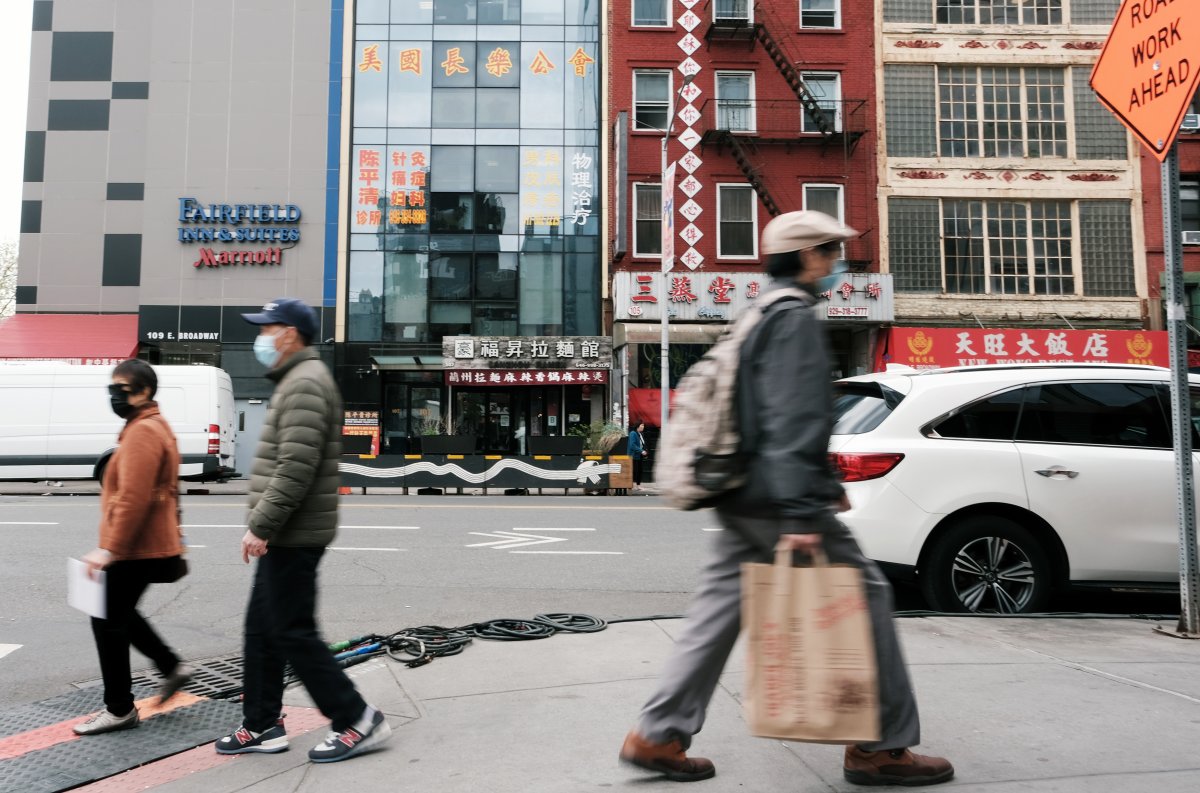- Two men were arrested in New York this week for allegedly establishing a Chinese secret police station. Senator Josh Hawley, who is calling for a TikTok ban, says the arrests add to concerns about the security threats the app poses to American data.
- Senator Marco Rubio and other lawmakers have also introduced legislation seeking to ban TikTok in the U.S. in recent months.
- Monday's arrests have heightened concerns in Washington about China's alleged surveillance of dissidents in the U.S. Beijing has denied that the offices are secret police stations, saying they're used instead for basic expat services, like renewing a driver's license.
Senator Josh Hawley is increasing pressure for a TikTok ban after two arrests were made in New York City in relation to an alleged secret police station for the Chinese Communist Party (CPP).
Hawley told Newsweek that the recent news furthered his arguments that the U.S. should prohibit the Chinese-owned social media app over national security threats the platform poses to American data.
"The Chinese government has been incredibly aggressive," the Missouri Republican said. "They've got secret police stations in our cities. They're trying to use our social media, and it's all for surveillance."
On Monday, two men, both U.S. citizens, were arrested by the Federal Bureau of Investigation (FBI) for allegedly establishing a secret police station in New York City to help the CPP collect information on dissidents in America. The Department of Justice (DOJ) also charged about three dozen officers with China's national police force, all of whom are believed to be in China, for using social media to harass U.S.-based critics.

The developments are a further escalation in already-deteriorating U.S.-China relations and reveal a new level of surveillance from Beijing, which was accused of sending a spy balloon over the U.S. mainland earlier this year. The news has heightened suspicions among lawmakers in Washington who question how far China would go to crack down on dissidents outside its borders.
GOP Senator Marco Rubio of Florida told Newsweek that the connection he sees between TikTok, which is owned by Chinese tech giant Byte Dance, and the discovery of the secret police is "the lengths to which the Chinese government is willing to go to target opponents."
"To [implant its own security officials] inside the United States, not to mention around the world, it's pretty crazy," Rubio said. "So, if [Beijing] is willing to do that, they're most certainly willing to go to some Chinese company, like ByteDance, and say they want them to manipulate the algorithm to cause chaos inside the United States."
Hawley and Rubio introduced legislation to ban TikTok in recent months. Hawley introduced his No TikTok on United States Devices Act in January, following his No TikTok on Government Devices Act—legislation that unanimously passed the Senate and became law in December. Rubio reintroduced his bipartisan ANTI-SOCIAL CPP Act, which would prevent TikTok from operating in the U.S., in February. He first introduced his bill in December.
A third bill, introduced by Democratic Senator Mark Warner of Virginia with support from Republican senators, doesn't name TikTok or ByteDance, like Hawley's and Rubio's bills did, but would give the secretary of commerce regulatory power over tech produced in China and other foreign adversaries.
Despite broad support in Congress, no bill has been passed into law.
Democratic Representative Ritchie Torres of New York told Newsweek that TikTok and the secret police station in New York City raise concerns about the conduct of the CPP, "but in the end, I see them differently."
"The TikTok issue is more complicated, but it's crystal clear that no foreign government should be operating police stations on U.S. soil without the authorization of the U.S. government," Torres said. "That's a clear-cut issue."

Torres said that while the secret police stations and TikTok can be used for surveillance purposes, concerns over the social media app "does not lend itself as easily to a straightforward solution."
Secret Chinese offices also have been reported in Europe, like Spain and Italy.
"Part of what's happening here is they tried to do this around the world—tracking people like that, tracking dissidents, trying to monitor movements," Hawley told Newsweek. "We cannot allow that to happen in this country."
Beijing has denied allegations that the offices are police stations, saying they exist to provide services, like renewing driver's licenses, for expats.

U.S. Attorney Breon Peace, who leads the DOJ office in Brooklyn, said that while those services were offered, the stations also served a more "sinister" function. Peace's office said that in one instance, one of the men arrested allegedly helped the Chinese government locate a pro-democracy activist in California. In another, he allegedly threatened a purported fugitive to return to China.
Rubio said the alleged crimes add to the argument that Beijing could soon recruit TikTok's parent company to serve a similar function. He said if the CPP is willing to send agents under the guise of embassy officials to "try to lure U.S. residents of Chinese descent back to China to punish them," Beijing is likely to go to ByteDance in a "time of conflict" to ask the platform to manipulate its algorithm for its global ambitions.
"It's one more wake-up call, but the arrest is just the tip of the iceberg," Rubio said.
Uncommon Knowledge
Newsweek is committed to challenging conventional wisdom and finding connections in the search for common ground.
Newsweek is committed to challenging conventional wisdom and finding connections in the search for common ground.
About the writer
Katherine Fung is a Newsweek reporter based in New York City. Her focus is reporting on U.S. and world politics. ... Read more
To read how Newsweek uses AI as a newsroom tool, Click here.






